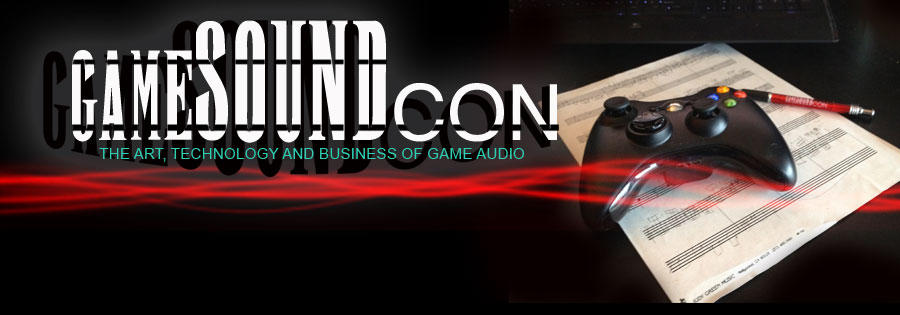Seattle, WA (September 28, 2015) – In November, GameSoundCon will welcome composers and sound designers to Los Angeles again this year for the premier conference for video game music and sound. Leading up to the conference, GameSoundCon Executive Director Brian Schmidt reveals the results of the organization’s annual survey on the state of the game audio industry. The survey of more than 600 professionals working in the industry provides an updated and realistic picture of the income possibilities and parameters for those looking for entry into this growing industry.
GameSoundCon received 18% more responses than last year to questions related to compensation, work and environment, additional compensation, use of live musicians and middleware, and contract terms. New questions for 2015 cover information on:
- How respondents got their current job
- Music budgets
- Education
- Hourly music/sound design rates
The results of the GameSoundCon survey reveal important new shifts and trends in the game audio industry:
- While 60% of respondents last year were working as freelancers, 2015 respondents were equally split between salaried employees and freelancers.
- On average, a salaried employee makes $80,546 in 2015, which is up from $70,532 that participants stated last year. However, compensation for freelancers under Work for Hire decreased by 18% in 2015 compared to the prior year.
- Compared with industries such as TV or film, the number of composers who register their game music is very small: less than 40% overall and only one in five for small games. This reflects the game industry’s struggles to understand how music publishing works.
- Most people got their job or project via networking or from someone they’d previously worked with—that number approaches 90%, which really emphasizes the value of networking events and conferences.
“One surprise was the jump in the number of composers who do some scripting or similar technical work,” says Brian Schmidt. “Almost one in four of those who delivered music also reported they did scripting. This may be due to the increasing popularity of engines such as Unity, which have easy to use, script-driven systems. If you want to work in games, doing sound design and having some more technical skills is a huge bonus, and makes you much more hireable.”
In addition to compensation information, the survey reported on:
- Work and environment
- Additional compensation (royalties, bonuses)
- Use of live musicians in video game music
- Use of middleware in games
- Contract terms, soundtracks and performance rights clauses
The complete report with details, graphs, and remarks on the statistical validity of the GameSoundCon survey can be found in the complete downloadable PDF at GameSoundCon.com.
About SoundCon LLC
SoundCon LLC is dedicated to education on the art, technology and business of composing for video games and video game sound design. With award-winning speakers and panelists from throughout the game and traditional audio industries, GameSoundCon is the leading music and sound conference specifically for the professional audio community. GameSoundCon creator and speaker Brian Schmidt received the Game Audio Network Guild’s 2008 Lifetime Achievement Award, and is a 27 year veteran in the game audio industry, having composed award-winning game music and created sound effects for over 130 interactive games.

Leave a Reply